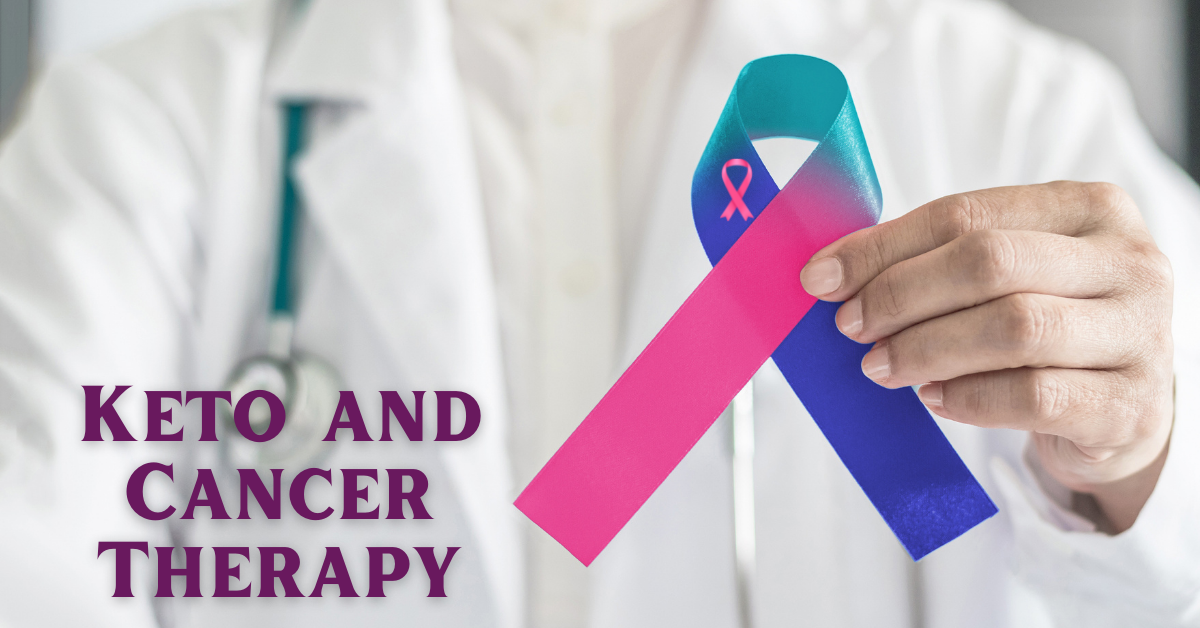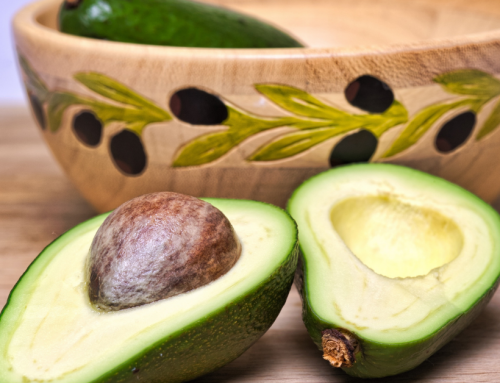The Ketogenic Diet and Cancer Therapy
The research around dietary changes reduces cancer risks and treats people already diagnosed.
The prognosis of cancer is never easy to hear from your doctor. Considering holistic alternative treatments to the big C may cause you anxiety, but it could be an excellent opportunity to learn more about this monster.

First, I am not an oncologist, medical doctor, or expert in eastern medicine. However, the deeper I dive into ketogenic diets, the more I learn about treatment. Most of us have known or currently know a family member, close friend, colleague, or child who has had cancer; maybe they won the battle, perhaps they did not. These people have in common with us is their will to fight for their lives. After receiving a cancer prognosis, investigating every possibility and treatment would be anyone’s top priority. Here are some things I have learned about ketogenic diets and cancer treatment.
My Personal Experience with Cancer
When I was a little girl, my favorite person in the world was my grandmother. I told her more secrets than my mother, painted my nails with her, and cooked food with her. I swam at the pool every summer with her, planted and watered her garden, and watched her read books under her bed lamp. She was my favorite person, and unfortunately, she left this earth at the very young age of 58.
My parents worked a lot; me and my brother were with my grandparents most days and after-school hours. My grandmother was the matriarch, the host of the holidays; my grandparents were the glue of the family. In Chicago, where I grew up, the seasons change quickly and usually leave people battling more colds than usual and other illnesses.
My grandmother has issues with her throat, slight swelling in her throat, and ignored it. She contributed the swelling to a lymph node reacting to her cold. She was not a doctor. Months went by, and that swelling grew into a lump in her throat. By the time she went to a doctor, her prognosis was throat cancer, and they recommended chemotherapy, possibly surgery, right away.
She wasn’t ready to die, so she fought and did whatever the doctors wanted her to do, radiation, chemotherapy, eventually surgery that left her with half a tongue and unable to speak to her family (the people she loved the most). She died more than a year after the diagnosis. It was in April, just as springtime began.

I was thirteen, just a seventh-grader. Once this happened, something changed dramatically in my view of the world. I remembered her pointing out that lump in her throat long before seeing a doctor; maybe things would have been different if I had said something. As healthy as my grandmother was, why did this happen to her? Bad luck? Genetics? The fate of the draw? These reasons were not good enough explanations, so I focused on things I could control. The food that went into my body was my first field of exploration and discovery of how much impact food makes. This disease devastated many people, young and old. Cancer is the scariest word around. No one wants to hear it at their next doctor visit or from a loved one.
THE KETOGENIC DIET AS ADJUVANT THERAPY IN CANCER TREATMENT

The Ketogenic Diet (KD), is a high-fat/low-carbohydrate/adequate-protein diet. It’s adjuvant therapy for cancer treatment, as proposed recently. KDs target the Warburg effect, a biochemical phenomenon in which cancer cells predominantly utilize glycolysis instead of oxidative phosphorylation to produce ATP. Furthermore, some cancers cannot metabolize ketone due to mitochondrial dysfunction and down-regulation of enzymes necessary for ketone utilization. They are essentially starving out the cancer cells.
Thus, the rationale in providing a fat-rich, low-carbohydrate diet in cancer therapy is to reduce circulating glucose levels. Also to induce ketosis so that cancer cells are starved of energy. In contrast, normal cells adapt their metabolism to use ketone bodies and survive. Furthermore, by reducing blood glucose also levels of insulin and insulin-like growth factor, which are essential drivers of cancer cell proliferation, drop.
A potential target for cancer therapy has been cancer metabolism. The Warburg Effect is a biochemical phenomenon.
It has been studied in three metabolic scenarios, the Warburg effect, the reverse Warburg effect, and glutamine addiction.
Cancer cells strongly upregulate glucose uptake and glycolysis to create new cancer cells compared to normal cells. Pubmed.com research explains, “An inappropriately composed diet consisting of high amounts of simple sugars supplies cancer cells with nutrients, which may impair the effectiveness of cancer patients’ treatment. Low-carbohydrate diets may, therefore, constitute an element of supplementary therapy in cancer treatment. The mechanism of low-carb diets combined with standard treatment has not been completely explained. Patients who were able to continue low-carbohydrate diets showed improvement in health, as per initial studies. Also a reduction of tumor mass or its slower growth. Moreover, they observed that the inability of cancer cells to adapt to new environmental conditions that occur while fasting may have a toxic effect on them.”
THE GUT-HEALTH CONNECTION
We have discussed the microbes in our gut. We’ve determined their essential role in our overall health, mental health, and ability to fight cancer.

We consider diet as a food regimen focused on weight loss. Also, the sum of food consumed by the organism. Dietary habits have a significant impact on quality of life, health, and longevity.
Western diets, modern lifestyles, sedentary behaviors, smoking habits, and drug consumption have significantly reduced gut microbial diversity. Which links to a lot of non-communicable diseases. Geographical, religious, ethical, and cultural choices also heavily influence dietary choices.
The latter kill 40 million people each year, equivalent to more than 70% of deaths globally. Among NCDs, tumors play a significant role, responsible for 29% of deaths from NCDs.
Recently, a link between diet, microbiota, and cancer prevention and treatment has been unveiled. This research reveals the importance of establishing healthy medical and functional diets with the right balance of vitamins, minerals, and other nutrients.
The effects of some of the most popular “cancer-specific” diets on microbiota composition and their potential impact on cancer prevention and treatment.
The gut includes at least 1000 different species of known bacteria with more than 3 million genes involved in several vital functions such as digestion of carbohydrates, suppression of harmful microbes (by competitive exclusion), vitamin synthesis, immune system activity, and drug metabolism [3,4]. The gut microbiota is now considered the “hidden” organ involved in maintaining host energy homeostasis and in the stimulation of host immunity.
Short-chain -fatty acids affect cancer treatment and prevention. A significant source of SCFAs is fiber. Short-chain-fatty-acids have been shown to inhibit cancer cell growth to varying extents, and through multiple mechanisms. In this regard, the best investigated SCFA is butyrate, which is structurally similar to the ketone body.
FASTING AND KETOSIS TO COMBAT CANCER CELL GROWTH
Many people who follow keto fall into a fasting period, sometimes intentionally and sometimes accidentally. Fasting occurs because versions of keto(targeted) and other diets are very nutrient-dense diets that eliminate simple sugars.

Depriving your body of sugar or breaking your addiction to sugar can provide incredible health benefits. Also, it can change your cell’s ability to combat cancer mutation. Through ketogenic diets, fasting periods can and will occur because once your body’s sugar addiction is broken, little cravings will dissipate.
Fasting is a dieting pattern consisting of abstinence from all solid food for a defined period. It has been practiced for millennia, especially as a religious observance, and—involuntarily—probably for much longer (millions of years) during human evolution, in this way shaping human metabolic flexibility [19].
Beyond weight loss, scientists endorse fasting diets, pointing to the associated health benefits [20]. Numerous scientific reports demonstrated the beneficial effects of fasting, short-term calorie restriction, or protein-restricted diets in mice models of certain types of cancer [21,22,23], accompanied by a decrease of side effects of chemotherapy in patients [21,24].
One of the main mechanisms through which fasting induces metabolic improvements is undoubtedly mediated by the gut microbiota [25]. For instance, every-other-day fasting (EODF) treatment led to a shift in the gut microbiota composition, increasing the levels of Firmicutes (a species of bacteria that have a gram-positive cell wall structure) while decreasing most other phyla and consequently increasing the production of SCFAs (short-chain fatty acids) as compared to control animals fed ad libitum.
Fasting promotes apoptosis in colon cancer models and induces an anti-Warburg effect that increases oxygen consumption but reduces ATP-synthesis, indicating an increase in mitochondrial uncoupling [26].
Furthermore, when fasting was combined with conventional therapies (e.g., gemcitabine, temozolomide), most of the mice displayed a reduced tumor size compared to the controls, indicating that fasting improves tumor-bearing survival and is safe, feasible, and well-tolerated [23,27].
Food withdrawal decreases the abundance of potentially pathogenic Proteobacteria while increasing Akkermansia muciniphila levels [28]. Patients with metastatic melanoma and high levels of A. muciniphila are responsive to anti-PD1 therapy, indicating a role for the microbiota in immunotherapy [29].
However, fasting can worsen cachexia syndrome, a medical condition that affects about half of all cancer patients. Since it has been demonstrated that the administration of probiotics and prebiotics improves the response to therapy and limit toxic side effects [30], one study tested the idea to shape the gut microbiota to slow down cachexia by administering Lactobacillus reuteri in drinking water to mice with colon cancer predisposed to cachexia. Gastrocnemius muscle masses and body weight were increased in L. reuteri-supplemented mice compared to untreated mice, together with reduced neutrophil counts, a marker of systemic inflammation [31].
KETOGENIC DIET, MICROBIOTA, AND CANCER
Ketogenic diets are a particular type of low-carbohydrate diets that reduce carbohydrate content to such an extent. It’s less than 50 g of carbs per day. The corresponding low insulin levels and mildly elevated cortisol levels induce the production of ketone bodies in the liver.
Ketogenic diets may promote metabolic health and protection against cancer and other non-communicable diseases through multiple mechanisms that include: (i) lowering insulin levels; (ii) enhancing mitochondrial substrate oxidation resulting in a sustained mild elevation of mitochondrial reactive oxygen species production and a hormetic anti-oxidative adaption; (iii) specific anti-oxidative and anti-inflammatory effects of the ketone body.
However, don’t know much about whether a Ketogenic Diet can promote a healthy microbiome and gut metabolome.
For cancer prevention, it could be hypothesized that a high intake of mono-unsaturated fatty acids and n-3 PUFAs, and non-starchy vegetables would be beneficial for promoting gut health.
In most preclinical tumor models, KDs have been shown to inhibit cancer cell glycolysis and proliferation. Some findings have also indicated the translation of such anti-tumor effects to patients [55,56].
However, the eventual role of the microbiota in mediating the anti-tumor effects of KDs has not been investigated so far. Such a role appears possible given the results of recent studies indicating an essential contribution of the gut microbiome in alleviating the symptoms of three different neurological disease conditions, namely, autism [57], multiple sclerosis [58], and infantile refractory epilepsy.
Ketogenic diets provide numerous health benefits and heavily influence how our body functions and cells operate. If I received a cancer prognosis, I would strongly consider the ketogenic diet as a treatment option.
Cited:
https://en.wikipedia.org/wiki/Firmicutes
https://www.ncbi.nlm.nih.gov/pmc/articles/PMC6524347/
Klement RJ, Pazienza V. Impact of Different Types of Diet on Gut Microbiota Profiles and Cancer Prevention and Treatment. Medicine (Kaunas). 2019 Mar 29;55(4):84. doi: 10.3390/medicina55040084. PMID: 30934960; PMCID: PMC6524347.






